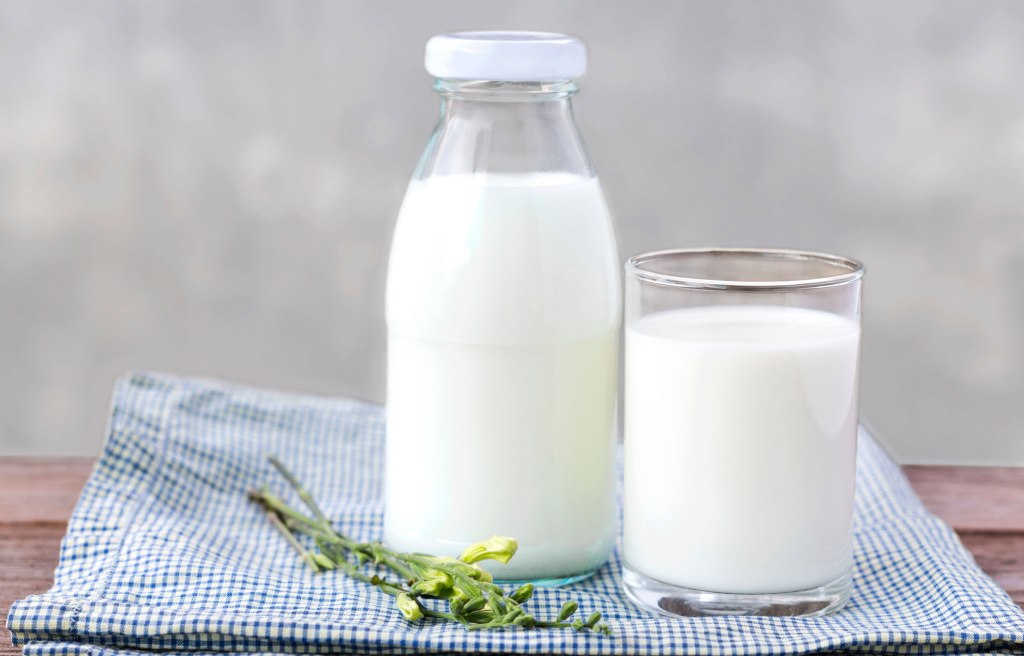There’s so much advice floating around on what to eat (and not eat), it can be hard to sift out the truth. Here are some facts to help you sort through what you hear.
Food Myths
Myth 3
– Dairy products are fattening and unhealthy.
Fact – Low-fat and fat-free milk, yogurt, and cheese are just as nutritious as whole-milk dairy products, but they are lower in fat and calories. Dairy products have many nutrients your body needs. They offer protein to build muscles and help organs work properly, and calcium to strengthen bones. Most milk and some yogurt are fortified with vitamin D to help your body use calcium.
Tip – The Dietary Guidelines for Americans, 2010 recommends consuming 3 cups per day of fat-free/ low-fat milk or equivalent milk products. For more information on these guidelines, visit http://www.health. gov/dietaryguidelines. If you cannot digest lactose (the sugar found in dairy products), choose low-lactose or lactose-free dairy products, or other foods and beverages that offer calcium and vitamin D (listed below).
Calcium: soy-based beverage or tofu made with calcium sulfate; canned salmon; dark leafy greens like collards or kale
Vitamin D: soy-based beverage or cereal (getting some sunlight on your skin also gives you a small amount of vitamin D)
Myth 4
– “Going vegetarian” means you are sure to lose weight and be healthier.
Fact – Research shows that people who follow a vegetarian eating plan, on average, eat fewer calories and less fat than nonvegetarians. They also tend to have lower body weights relative to their heights than nonvegetarians. Choosing a vegetarian eating plan with a low fat content may be helpful for weight loss. But vegetarians—like nonvegetarians—can make food choices that contribute to weight gain, like eating large amounts of high-fat, high-calorie foods or foods with little or no nutritional value. Vegetarian diets should be as carefully planned as nonvegetarian diets to make sure they are balanced. Nutrients that nonvegetarians normally get from animal products, but that are not always found in a vegetarian eating plan, are iron, calcium, vitamin D, vitamin B12, zinc, and protein.
Tip – Choose a vegetarian eating plan that is low in fat and that provides all of the nutrients your body needs. Food and beverage sources of nutrients that may be lacking in a vegetarian diet are listed below.
Iron: cashews, spinach, lentils, garbanzo beans, fortified bread or cereal
Calcium: dairy products, fortified soy-based beverages, tofu made with calcium sulfate, collard greens, kale, broccoli
Vitamin D: fortified foods and beverages including milk, soy-based beverages, or cereal
Vitamin B12: eggs, dairy products, fortified cereal or soy-based beverages, tempeh, miso (tempeh and miso are foods made from soybeans)
Zinc: whole grains (especially the germ and bran of the grain), nuts, tofu, leafy vegetables (spinach, cabbage, lettuce)
Protein: eggs, dairy products, beans, peas, nuts, seeds, tofu, tempeh, soy-based burgers.
Hope you liked the series.
Reference : https://www.umassmed.edu/contentassets/5fa88184f3a441e7b61ac8e256ea5ef7/myths.pdf






Leave a comment